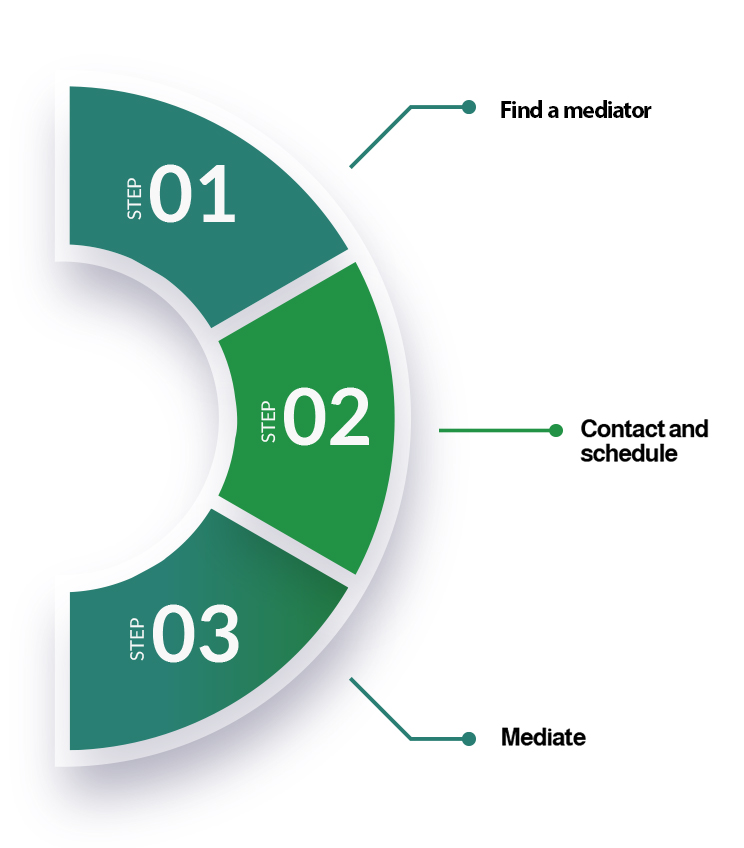WHAT IS MEDIATION?
What is mediation?

Mediation is a facilitated process for resolving disagreements of any kind between individuals or groups.

In mediation, two or more parties come together with a certified professional dedicated to creating a safe space for discussion.

Mediation can happen in person or virtually, depending on the parties’ needs.
Why choose mediation?
Mediation can resolve disputes quickly and satisfactorily without the expense, delay and anxiety of litigation. In a court proceeding, decisions are made and judgments are issued only by public officials and according to the law. Individuals have very little control over the process or outcomes.
The benefit of mediation is that the decision-making authority rests with the parties themselves. Though it is an informal process that occurs outside the eye of the law, mediation allows for flexibility and development of creative solutions that can be adopted under the law if necessary.
What does Mediation do?
Mediation is voluntary for everyone involved. Even if mediation is court ordered, either party may withdraw at any time for any reason or for no reason at all.
Mediation is confidential
Mediation sessions are confidential. Nothing that is discussed in mediation can be used in a court of law. This ensures that all parties are free to be creative and candid in their efforts to reach an agreement.
Mediation is voluntary
A mediator is an impartial third-party facilitator
professionally trained to help parties develop mutually
acceptable resolutions to disagreements or conflicts.
You can count on a mediator to:
- assure the fairness of the process
- facilitate communication
- maintain the balance of power between all parties


Mediators do not provide legal advice.
Mediators make no judgments or decisions regarding the outcome of a mediation. Instead, their role is to provide a safe, confidential environment where the parties can focus on important issues and discover their own resolution.

What to expect
The mediation process generally includes one or more meetings between the disputing parties and the mediator. It may also include one or more confidential sessions between individual parties and the mediator. In some cases, mediation may be completed over the course of a day or less.
Facilitative Mediation is a five-step process:

Introduction
The mediator will introduce themselves and the parties.

Process
The mediator will describe the process and lay out the rules for engagement.

Discovery
Each party will have the opportunity to fully describe the problem from their perspective and without interruption. The mediator will actively listen, ask clarifying questions and rephrase to ensure understanding of the issues.

Problem Solving
Once the parties have shared their perspectives, the mediator will facilitate a problem-solving conversation between the parties aimed at developing solutions.

Agreement
If the parties reach an agreement, the mediator will formalize the terms of the resolution in a document to be signed by each individual. If the courts or official bodies are involved, formal documents may submitted for official review and adoption by the appropriate governing body.
What if it doesn’t work?
Even when parties can’t fully agree, mediation often helps the parties to be more fully prepared for court. Partial agreements are also common, which can maximize courtroom efficiency. If mediation is unsuccessful and an agreement cannot be reached, parties may still pursue any available legal remedies, including private lawsuits.

